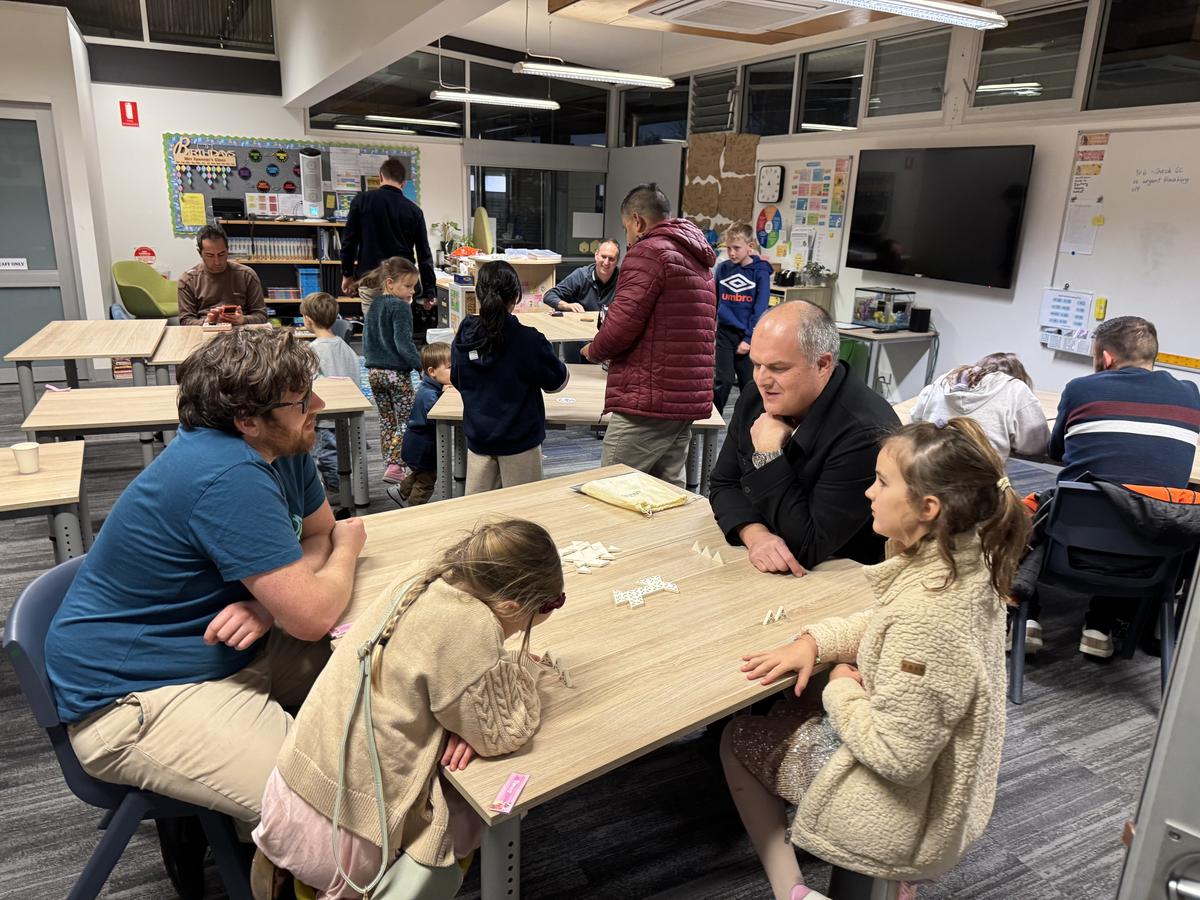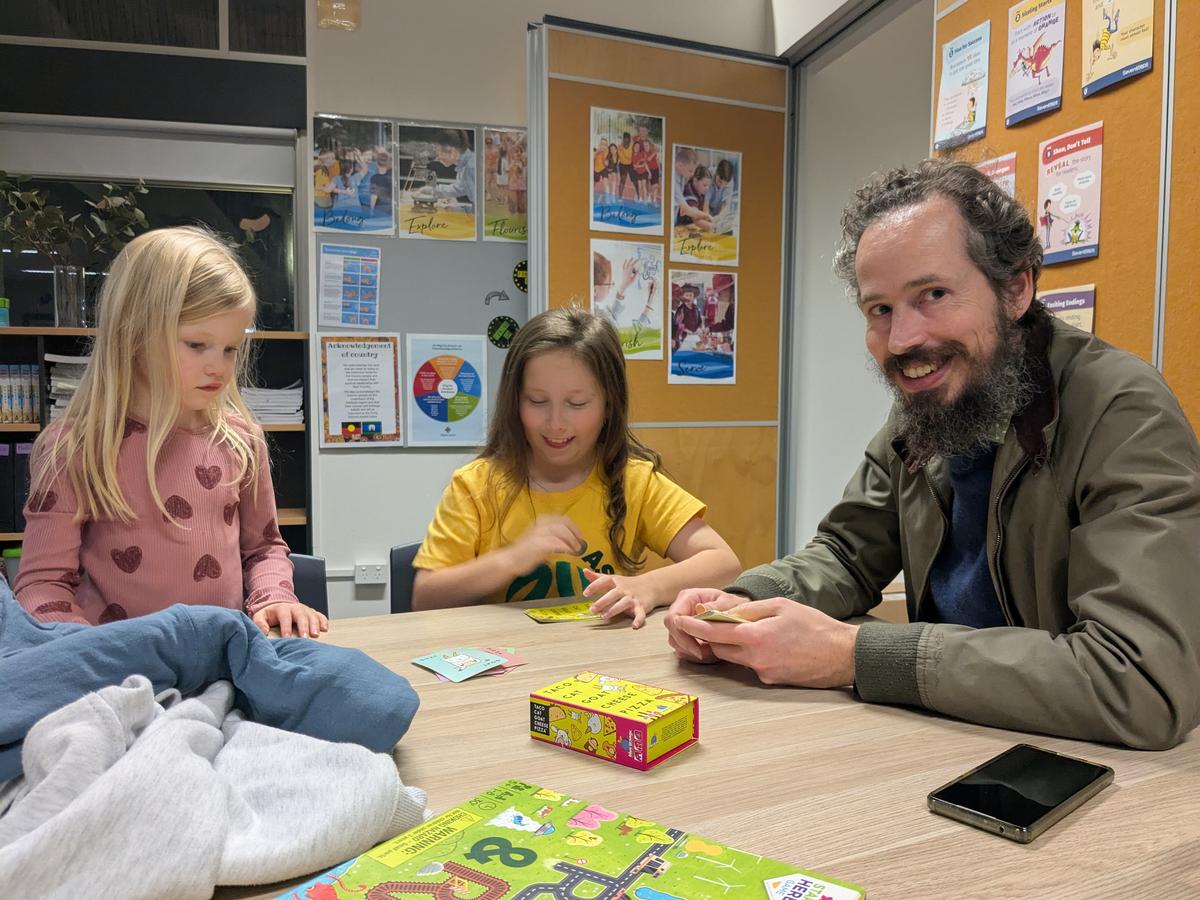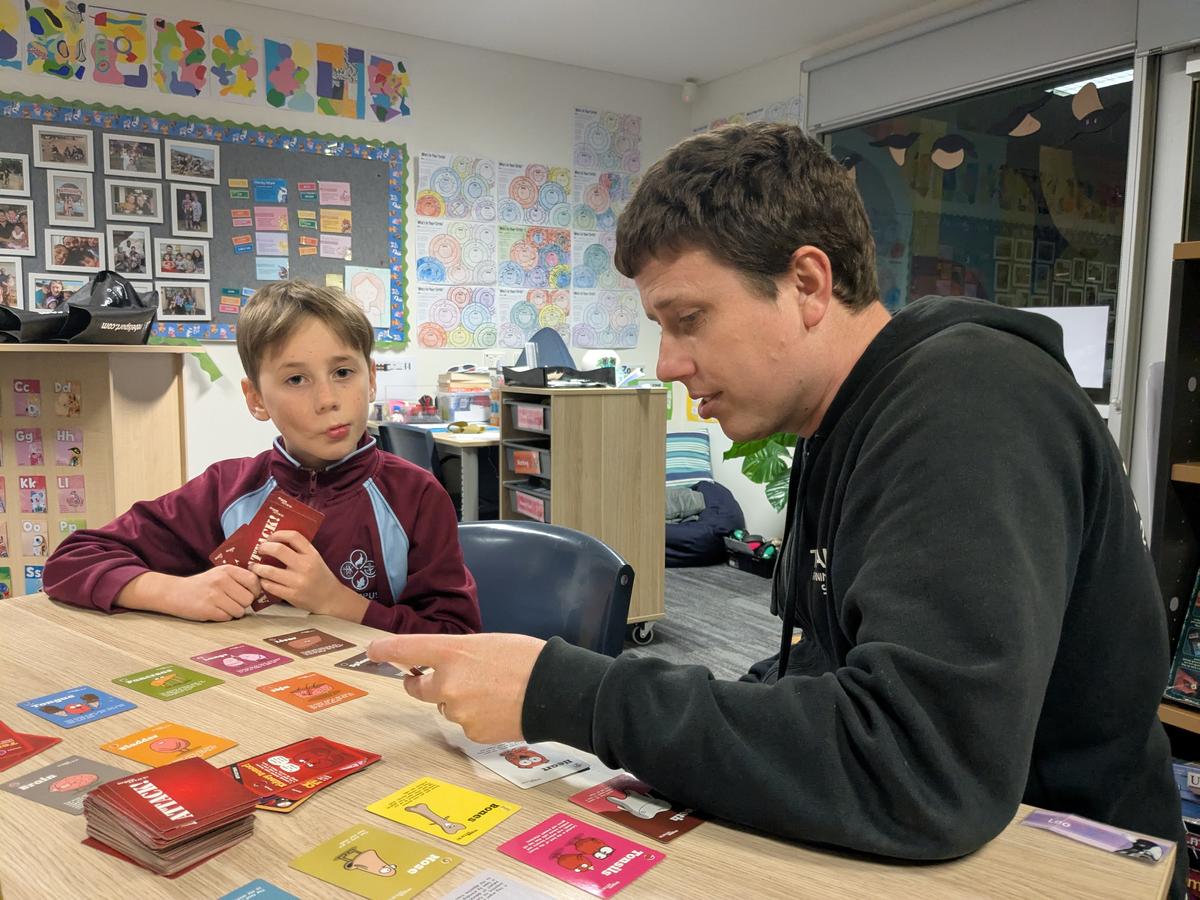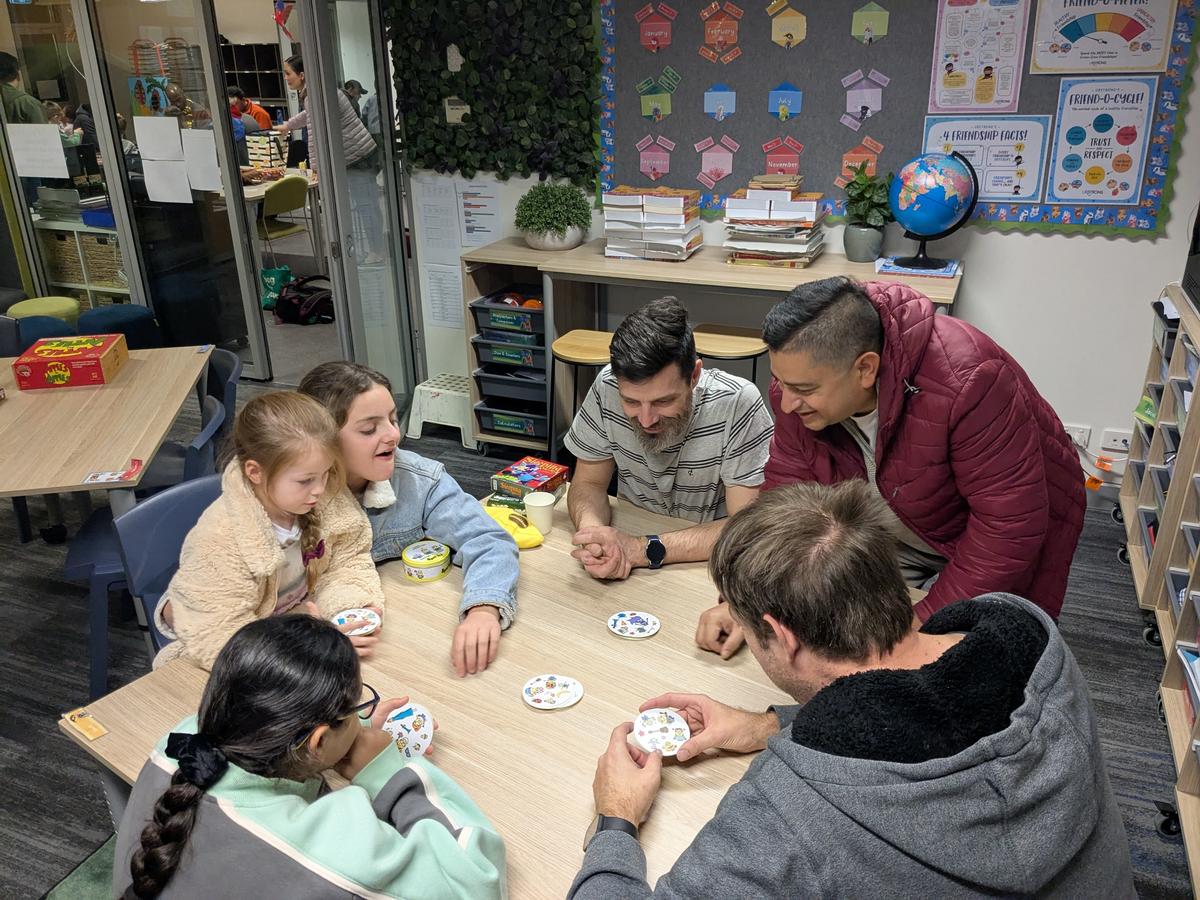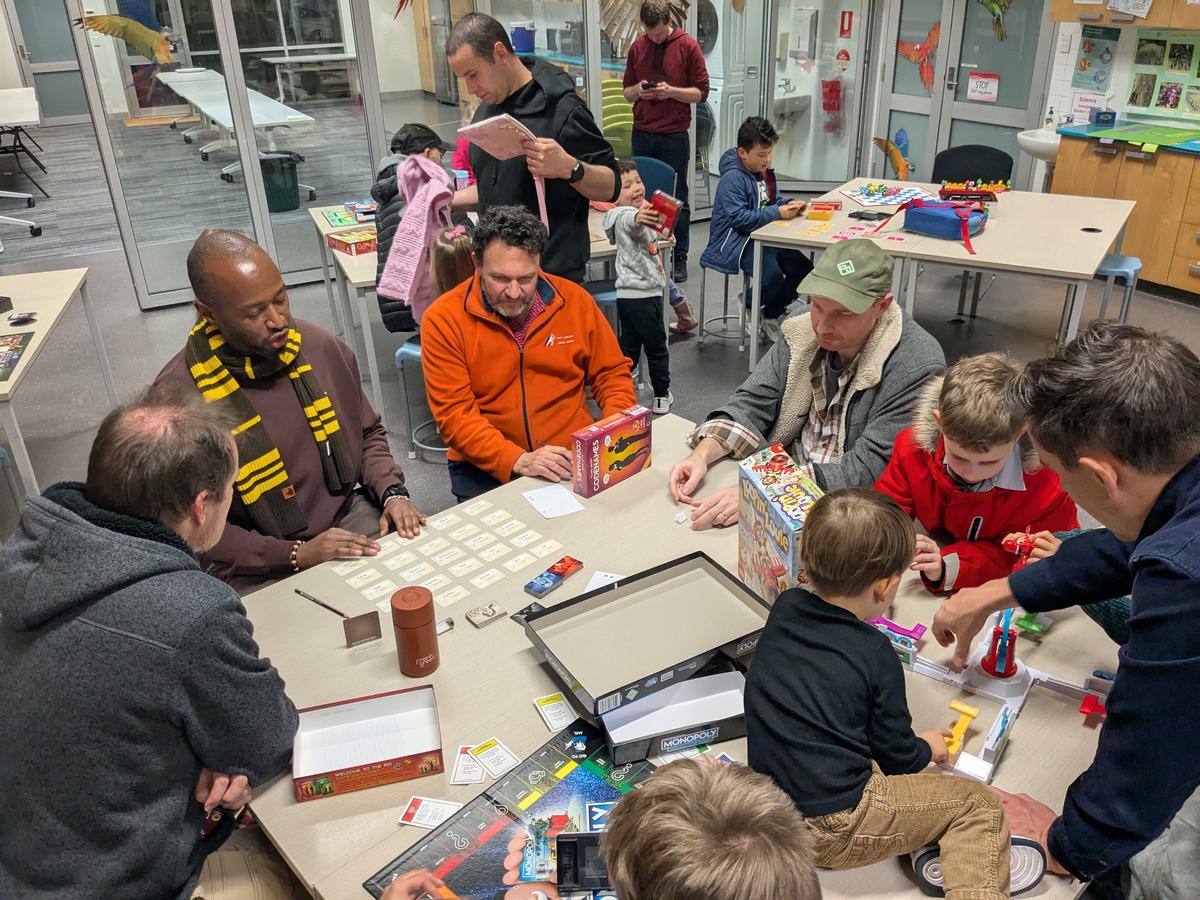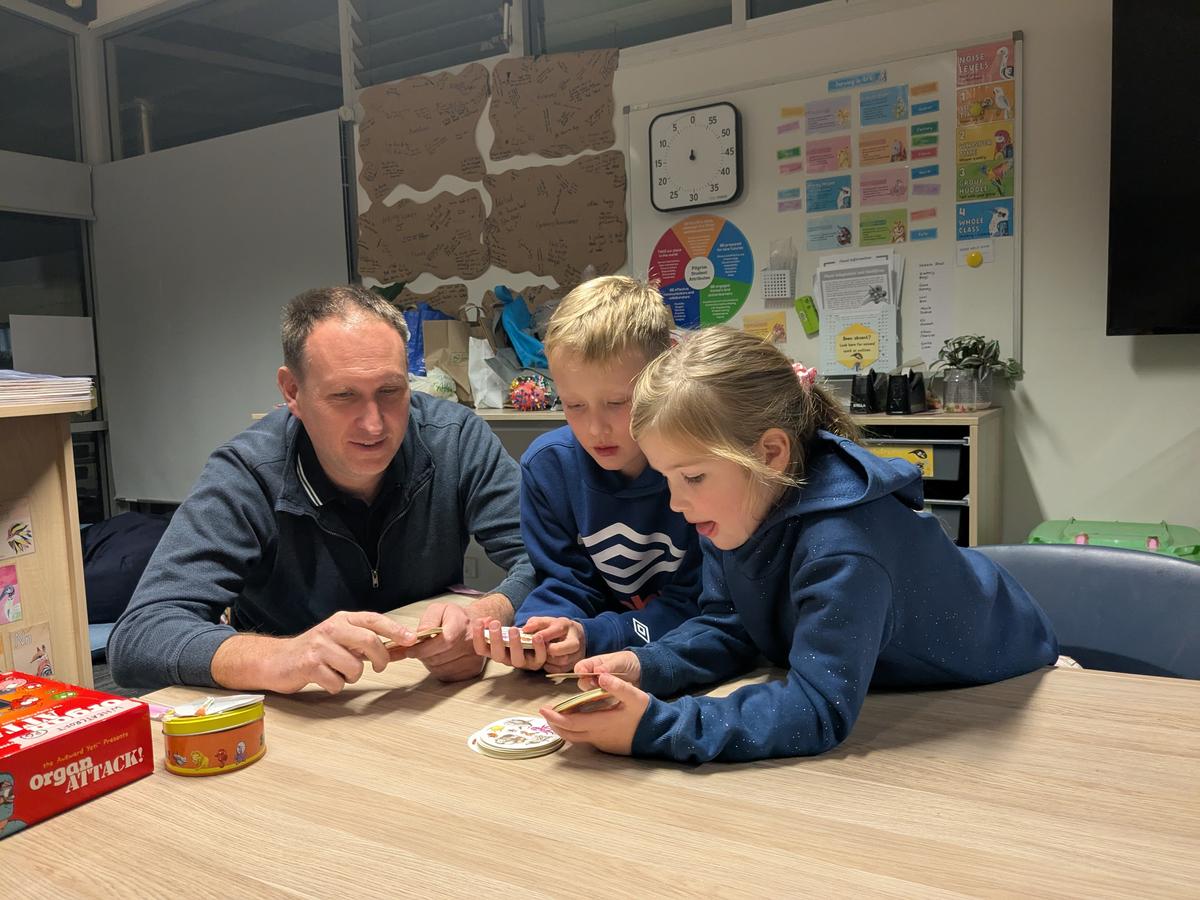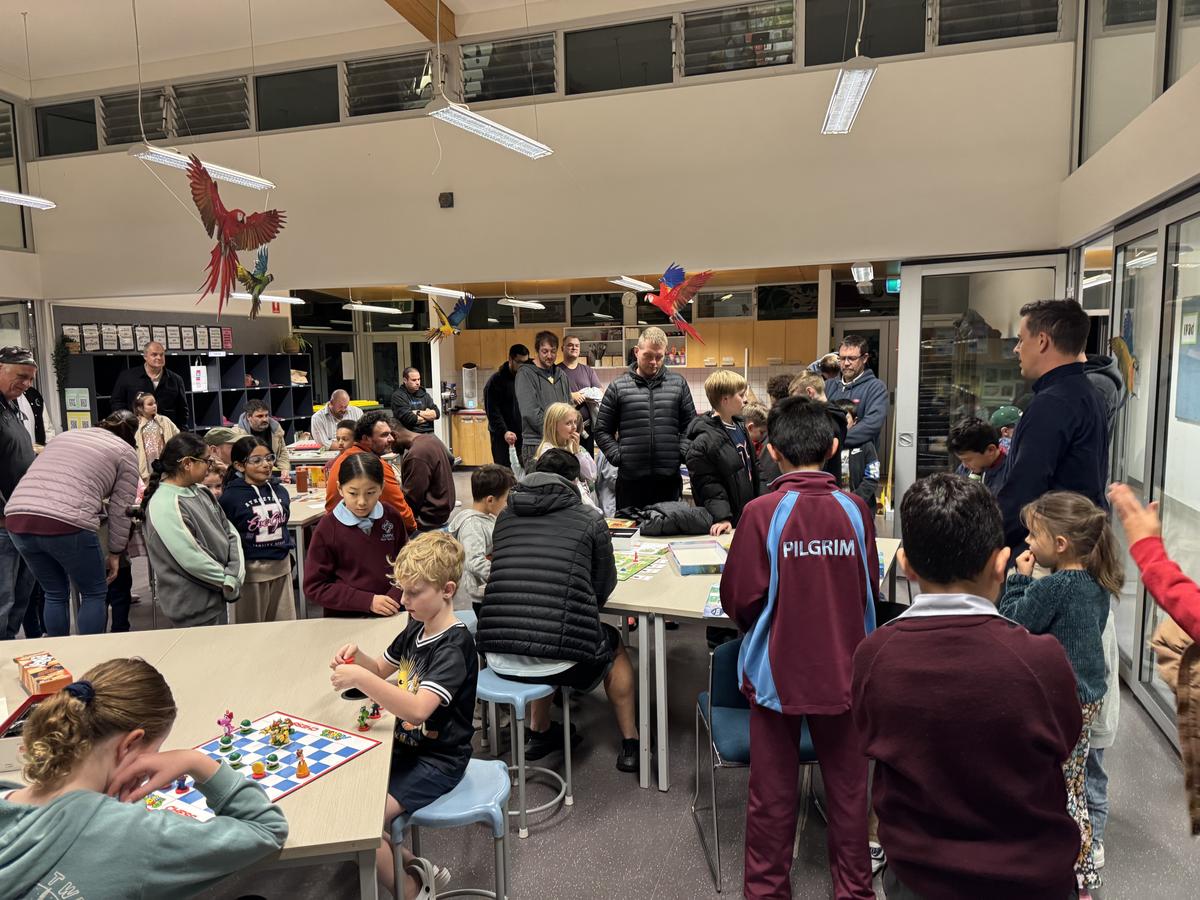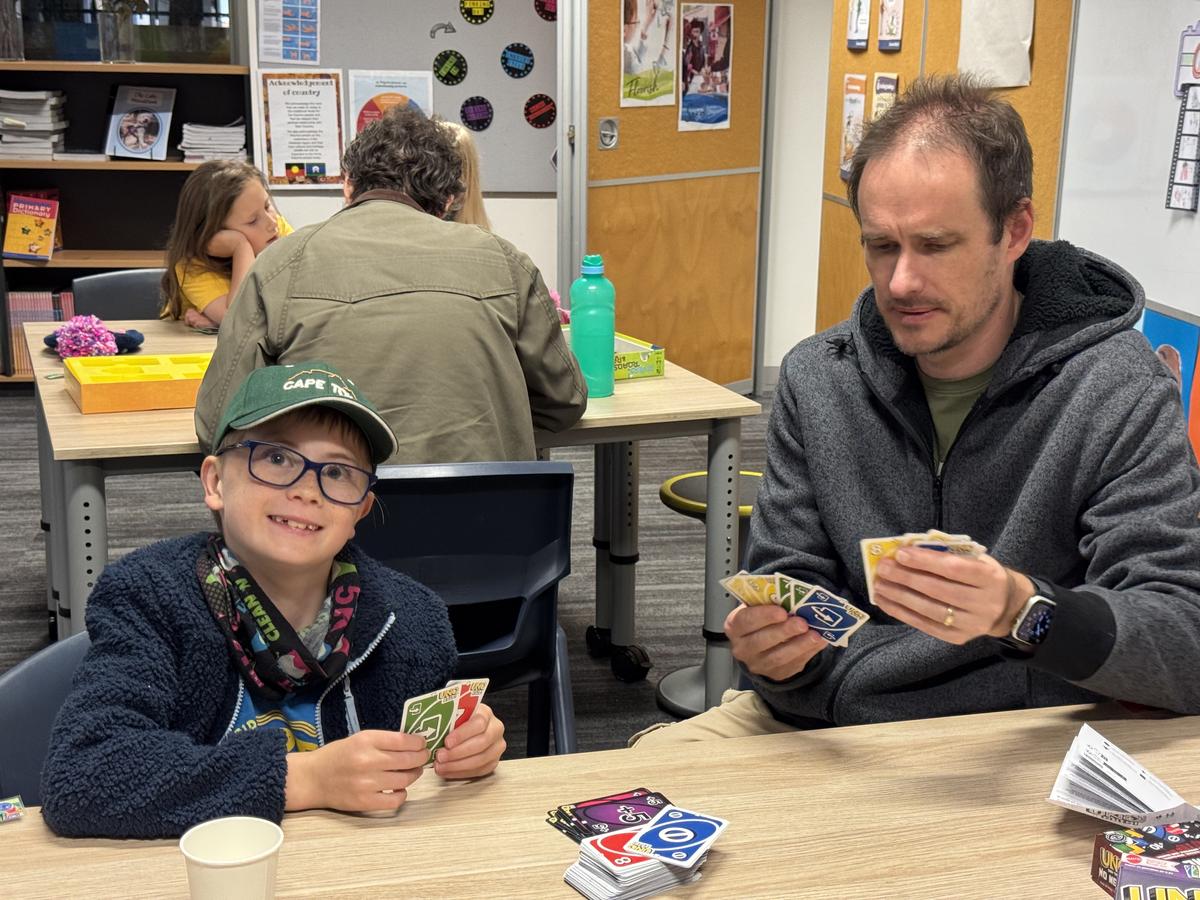Wellbeing
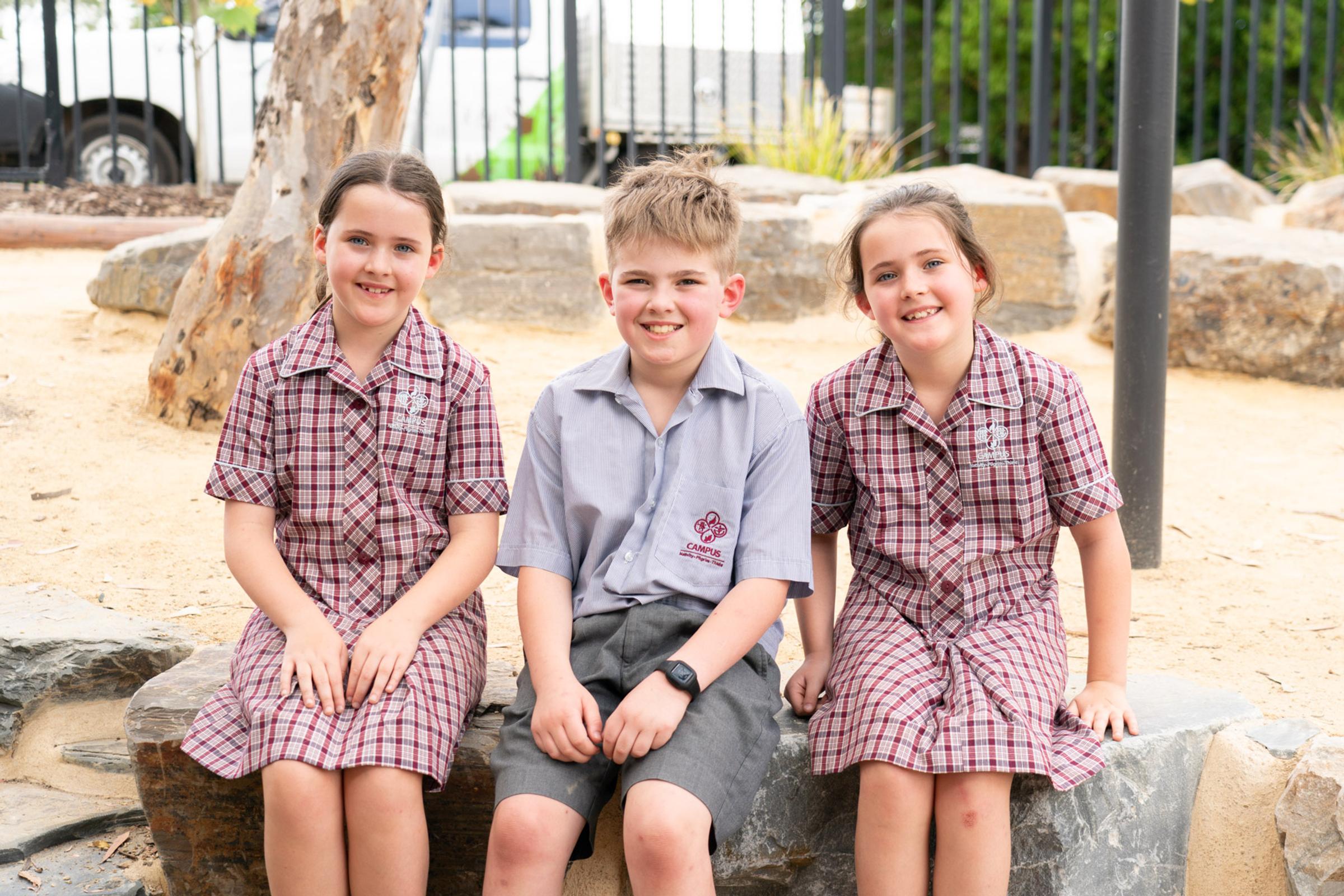
Fathering Project: Pizza, Boardgames & Big Impact
It was great to see so many dads, and a couple of honorary mums, come out on Friday 13th June, to support their kids and our Pilgrim community through the noble arts of devouring pizza and conquering small people in Monopoly (Balderdash).
The Fathering Project is a valued and important initiative we’re proud to support. It’s more than a fun night out, it’s about recognising the huge impact fathers and father-figures have across the developmental milestones in a child’s life.
When dads show up, research shows children benefit. There’s improved attachment and emotional security. There’s stronger social and emotional development, thanks to the way dads often play: energetic, unpredictable and physical. And believe it or not, dads and grandads talk differently than mums, and those differences help boost kids’ language and cognitive growth.
Dads, your encouragement builds your child’s self-esteem and shapes their identity. And when you play, talk and connect (yes, boardgames count!), you’re helping your kids understand healthy masculinity and respectful relationships. Especially for daughters, that matters deeply.
Thanks for coming, dads. You make a difference.
Jordan Wheatcroft
Wellbeing Team
Wired for Worship: How Music Shapes the Brain, Emotions and Faith
I’ve always loved music. Some of my most vivid memories are tied to sound, being held by my mum in church as she sang hymns, my ear against her chest, her voice resonating like it filled a grand music hall. Later, my older siblings introduced me to bands and genres, and I remember sitting in our family armchair, completely swept away by Muse: Absolution. I fell in love with music.
Now, with a house full of instruments, acoustic, electric, bass, keyboard, even a tin whistle, the best I can claim is a decent attempt at Amazing Grace on guitar and a slightly shonky Concerning Hobbits on tin whistle. These days, the most meaningful musical moments are dancing in the kitchen with my kids or making up nonsense songs while we clean; and praising God with my family at church.
It’s no surprise, then, that music plays a huge part in my life. But beyond personal enjoyment, neuroscience tells us that music has profound effects on our brains, and as Christians, we know it also speaks to our souls.
What Music Does to the Brain
Neuroscience reveals that music activates almost every region of the brain. When we listen to or create music, we engage:
- The auditory cortex – processes sound
- The motor cortex – keeps rhythm and coordinates movement
- The limbic system – stores emotion and memory
- The prefrontal cortex – manages focus and decision-making
- The hippocampus – handles long-term memory
That full-body experience I had with Muse, or while wrapped in my mum’s singing, it makes a lot more sense now!
Music also boosts dopamine, the brain’s 'feel-good' chemical, and reduces cortisol, the stress hormone. That’s why it can lift your mood, bring comfort, or help you reflect, often without you even realising it.
Practical Ways to Use Music at Home and School
Whether you’re a parent, teacher or carer, music can be a great support tool. Here are a few ways to bring more music into everyday life:
- Use music to motivate tasks – My mum (a kindy director) encouraged me to sing with my kids while we clean. So I did! Turns out a silly 'tidy up' song works wonders. My daughter’s class even races to beat the end of the 'Clean Up Robot' YouTube song.
- Reinforce learning through rhythm – Songs and rhymes activate the brain’s pattern recognition. This helps kids remember concepts more easily, from ABCs to times tables.
- Create space for calm – Worship or instrumental music can help students and adults enter a more peaceful, focused state. Playing soft music during quiet time, journaling, or reflection can ease anxiety and support emotional regulation.
- Lead by example – You don’t need to be musically gifted. Whether you sing badly in the car, dance around the house, or pull out a dusty instrument, you’re showing children that music is something to enjoy and participate in.
Music and Worship
As Christians, we understand music not only as a neurological wonder, but as a sacred gift. The Bible is full of musical moments: David calming Saul with his harp, the Psalms sung in praise and lament, the choirs of heaven lifting their voices in worship. Music connects us with God in a way words often can’t.
Studies show that music helps the brain enter alpha and theta brainwave states, which are associated with calmness, reflection and creativity. No wonder worship songs help us tune out the noise and focus on God.
Even Scripture reflects music’s rhythm and memory power. Psalms like the beloved Psalm 23 use poetic repetition, meter, and imagery, not only to stir our hearts, but to help us remember.
My prayer is that you’ll discover practical ways to use music to support your wellbeing, and if you’ve already found what works for you, that you’ll be encouraged to share it with others.
Jordan Wheatcroft
Wellbeing Team
Fathering Project - Resource
Encouraging a Growth Mindset
We all have beliefs about our own abilities and potential. These beliefs are a part of our mindset which is a powerful tool that shapes our everyday lives. A growth mindset is the belief that abilities can be developed through effort and practice. Children with a growth mindset believe that if they work hard, they can achieve improved results. They have a more positive attitude towards learning, are more willing to face challenges and see failure as a part of the process of learning.
Brett Middleton
Wellbeing Coordinator

